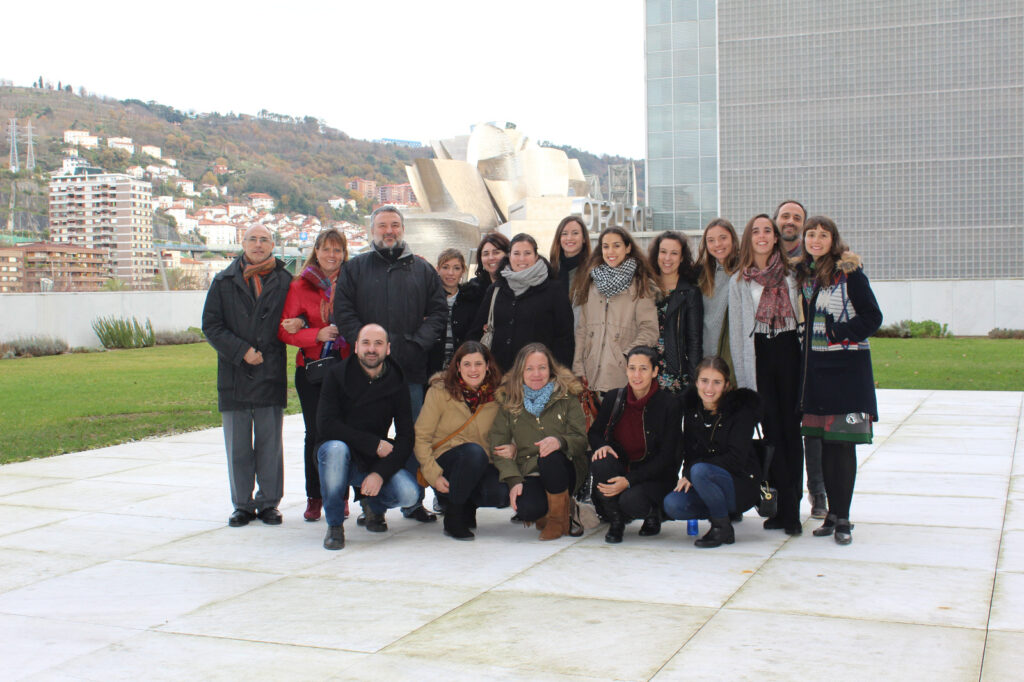Pursuing the activities of the World Day of Depression we present the trajectory of the research group ” Neuropsychopharmacology” of the University of the Basque Country.
Group presentation
The Neuropsychopharmacology group of the University of the Basque Country (UPV / EHU) belongts to the Department of Pharmacology and develops its activities preferably at the Faculty of Medicine and Nursing on the Leioa Campus (https://www.ehu.eus/es / web / neuropsychopharmacology)
The research group is also part of the CIBERSAM Mental Health Network Biomedical Research Center, an initiative of the Carlos III Health Institute and which is made up of twenty-five clinical and basic research groups dedicated to conducting cooperative research on mental illnesses such as depression with a translational view. The group is also part of the Biocruces Bizkaia Health Research Institute.
What is the line / s lines of investigation that the group follows?
The Neuropsychopharmacology group follows since 1986 a line of research aimed at evaluating the existing alterations in the central nervous system in various psychiatric disorders. A preferred line of research consists of evaluating the involvement of different neuroreceptors in affective disorders. This line of work covers two large areas, one of them based on the study of neurochemical disorders observed directly in the postmortem brain of subjects with depression and the other on the use of animal models, preferably in vivo, to analyze the responses of these parameters. neurochemicals to antidepressant drug treatments. Postmortem human brain studies are possible thanks to an agreement with the Basque Institute of Legal Medicine that has allowed the Neuropsychopharmacology group to build a brain collection that currently has samples from more than a thousand normal and pathological brains with their corresponding diagnosis. Both lines benefit each other and allow to orient experimental designs towards objectives with clear utility in the treatment of specifically human pathologies such as depression.
What type of depression is the research focusing on?
The scientific activity of the group focuses on the study of the biological bases of major depression, and on the development and pharmacological evaluation of new compounds with a potential antidepressant effect.
What new data has been generated in the group?
During its long history, the UPV / EHU Neuropsychopharmacology group has described the existence of alterations in both the expression and the functionality of different types of receptors in the brain of patients with depression. Among these findings, the hyperactivity of alpha-2 adrenoceptors in the brain of depressed patients stands out, which has contributed to the development of antagonist drugs of these receptors as potential antidepressants.
Latest published works
- Rivero G.; Gabilondo A.M.; García-Sevilla J.A.; Callado L.F.; La Harpe R.; Morentin B.; Meana J.J. “Brain RGS4 and RGS10 protein expression in schizophrenia and depression. Effect of drug treatment”. Psychopharmacology 226: 177-188 (2013).
- Rivero G.; Gabilondo A.M.; García-Sevilla J.A.; La Harpe R.; Callado L.F.; Meana J.J. “Increased alpha2- and beta1-adrenoceptor densities in postmortem brain of subjects with depression: differential effect of antidepressant treatment”. Journal of Affective Disorders 167: 343-350 (2014).
- Muguruza C.; Miranda-Azpiazu P.; Diez-Alarcia R.; Morentin B.; González-Maeso J.; Callado L.F.; Meana J.J. “Evaluation of 5-HT2A and mGlu2/3 receptors in postmortem prefrontal cortex of subjects with major depressive disorder: effect of antidepressant treatment”. Neuropharmacology 86: 311-318 (2014).
- Rodríguez-Muñoz M.; Sánchez-Blázquez P.; Callado L.F.; Meana J.J.; Garzón-Niño J. “Schizophrenia and depression, two poles of endocannabinoid system deregulation”. Translational Psychiatry 7:1291-1302 (2017).
- Martín-Hernández D.; Caso J.R.; Meana J.J.; Callado L.F.; Madrigal J.L.; García-Bueno B.; Leza J.C. “Intracellular inflammatory and antioxidant pathways in postmortem frontal cortex of subjects with major depression: Effect of antidepressants” Journal of Neuroinflammation 15: 251-262 (2018).
- Ibarra-Lecue I.; Pilar-Cuéllar F.; Muguruza C.; Florensa-Zanuy E.; Díaz A.; Urigüen L.; Castro E.; Pazos A.; Callado L.F. “The endocannabinoid system in mental disorders: Evidence from human brain studies”. Biochemical Pharmacology 157: 97-107 (2018).
- Odagaki Y.; Kinoshita M.; Meana J.J.; Callado L.F.; García-Sevilla J.A. “5-HT2A receptor-mediated Gaq/11 activation in psychiatric disorders: A postmortem study”. The World Journal of Biological Psychiatry 22: 505-515 (2021).


